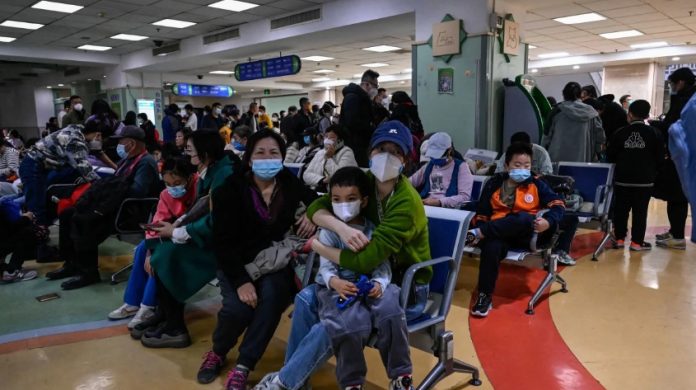China on Friday called for vigilance over a sharp rise in respiratory illnesses in schools and hospitals.
The World Health Organisation had earlier asked the government for data on the incidence of the disease. After analysing the received information, it was found that no unusual or new pathogens had been detected.
China is grappling with a surge in respiratory illnesses as it enters its first full winter season following the lifting of strict COVID-19 restrictions in December. The high incidence is among children in northern areas such as Beijing and Liaoning province, where hospitals have warned of long waiting times.
The State Council said flu cases would peak in winter and spring this year, and Mycoplasma pneumoniae incidence would remain high in some areas in the future. It also warned of the likelihood of a resurgence of COVID infections. The State Council said in a statement:
All localities should strengthen information reporting on infectious diseases to ensure information is reported in a timely and accurate manner.
This week, the WHO requested more information from China citing a report by the Programme for Monitoring Emerging Diseases (ProMED) on clusters of undiagnosed pneumonia in children. Both China and WHO have faced questions about the transparency of reporting on the earliest COVID-19 cases, which emerged in late 2019 in the central city of Wuhan.
The WHO issued a statement on Thursday saying China had responded to its request and the data it provided suggested the cases were linked to the lifting of COVID restrictions, as well as the circulation of known pathogens such as Mycoplasma pneumoniae, a common bacterial infection commonly affecting children that has been circulating since May.
Authorities began issuing medical advisories this month, saying they were paying attention to the situation and warning the public about long waits and the risk of cross-infection in overcrowded hospitals. But they have not introduced measures similar to those taken during the COVID pandemic, such as masks or school closures.
Bruce Thompson, head of the Melbourne School of Health Sciences at the University of Melbourne, said preliminary evidence suggested it was not unusual. He noted:
At this stage, there is nothing to suggest that it may be a new variant of COVID. One thing to note is that we can be reassured that the surveillance processes are working, which is a very good thing.
